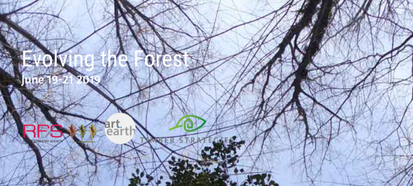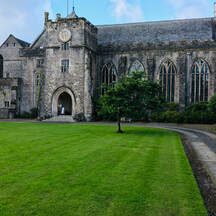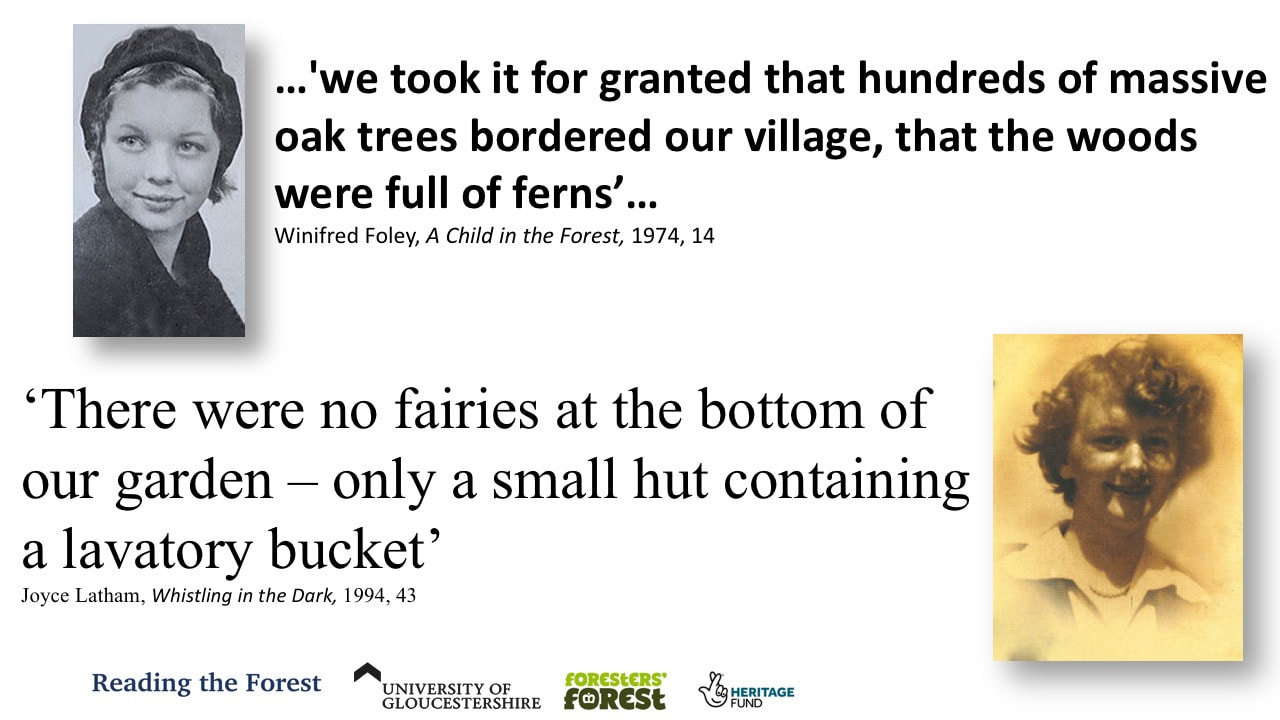 The first adjustment to make at a conference on forests and forestry, is to remind yourself that when delegates talk about, ‘the forest,’ they don’t mean your forest, ‘The Forest’ – The Forest of Dean – they’re instead taking about an abstract forest, all forests. Perhaps it’s why professional forestry people call where we live ‘the Dean’, but if you live here long enough to feel this is home (and you're not involved in forestry) you’ll know that we live in the Forest. Anyway, adjustment made, what a truly fascinating and inspiring event this was: Evolving the Forest 19th-21st June, three days of talks, presentations, performances and workshops at the beautiful Dartington Hall near Totnes in Devon. Forestry professionals, ecologists, artists and academics from around the world exploring our relationships to trees, woodlands, and wood, and how this is evolving, and may have to evolve further in the face of global climate change and species extinction. The event opened with the brilliant Fiona Stafford, professor of English at Oxford University, delivering a whistle stop tour of art and literature’s portrayal of trees from the seventeenth century onwards, and how this has impacted on our wider culture. Fiona ended her keynote talk with pictures of individual trees significant to her – trees as almost part of the family. Day two’s keynote was a contrast with Professor Kathy Willis talking on the theme of natural capital and measuring the financial value of the natural world. An uncomfortable notion for some, certainly one that might be contested, but that aside Professor Willis demonstrated some incredibly innovative research techniques drawing on the latest technology and thinking, for example, who knew that there’s the same fractal ratio to all of our favourite landscape views?  With three strands of talks across the event it was only really possible to get a flavour of the over-all conference, so here are just a few of the highlights. Camilla Allen talked about the forester St Barbe Baker and the organisation he founded called The Men of the Trees. She focused on their creation of tree cathedrals in the landscape. Professor Adrian Newton’s energetic and thoroughly engaging presentation shared his research into ecological tipping points and forest ecosystem collapse. In essence, everything looks fine until all of sudden it’s not. This was a warning against complacency. Equally thought provoking were presentations by artists and poets. Naomi Hart took us into the tropical forest of Tasmania through soundscape, drawings and a poetic analysis of her own artistic practice. Poet and educator Mandy Haggith explained how every letter of the Gaelic alphabet is based on a tree name. She creates poetry with forestry workers exploring their relationship to trees. Friday took a distinctly ‘woo-woo’ turn, as the first speaker of the day described it himself. Simon Leadbeater presented a convincing argument for a level of tree sentience, backed by the latest scientific research that shows how trees communicate, cooperate and respond to their environment. The self-confessed ‘woo-woo’ (how his wife, a scientist, describes it) moment came when he explained how some researchers claim that trees have spoken to them. Whilst this may be difficult to swallow – as he himself admitted – these ideas do suggest that perhaps we could adopt a radically more sympathetic attitude to the natural world. Amongst this huge variety of ideas I was thrilled to be able to talk about the literary heritage of the Forest of Dean, and what it tells us about our relationship to our forest. I started with an admission that across two hundred years of Forest writing, it’s not so much about the trees! Rather than landscape or natural environment being always to the fore, Forest literature describes a distinctive place, a lived landscape consisting of social networks. It is writing about people, work, places and histories, and humour. That’s not to say that there’s not a deep love of environment and nature often evident. And of course trees and nature do actually feature – from the poems of Catherine Drew to the novels of Dennis Potter and the auto-biography and verse of Leonard Clark. In explaining how strong our sense of custodianship and care has always been for a free and open F/forest I presented images from the 2011 Hands Off Our Forest demonstration at Speech House and showed how this was in part simply a continuation of a radical Forest tradition in defence of the Forest. After three days of warm conversations and sharing ideas, it’s good to be back in the Forest, safe in the knowledge that just a few more people now know about our fantastic literary heritage and distinctive identity.
1 Comment
Lizzie Sykes
18/8/2019 12:41:03 pm
Good to read your post about Evolving The Forest. Your presentation was an unexpected surprise. I hadn't considered this subject matter before, and it stayed with me. Really interesting and relevant in the mix of speakers.
Reply
Leave a Reply. |
Archives
June 2024
|

 RSS Feed
RSS Feed


